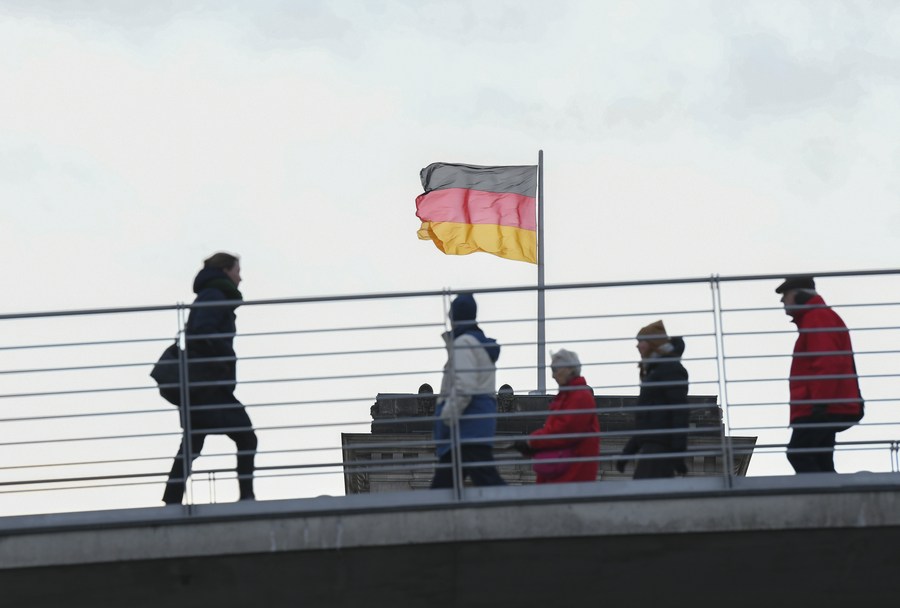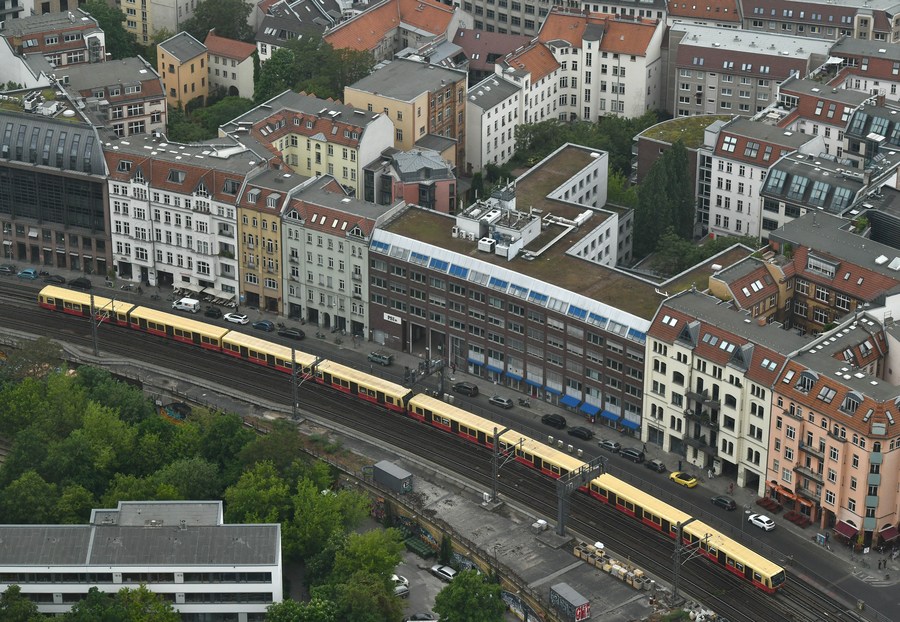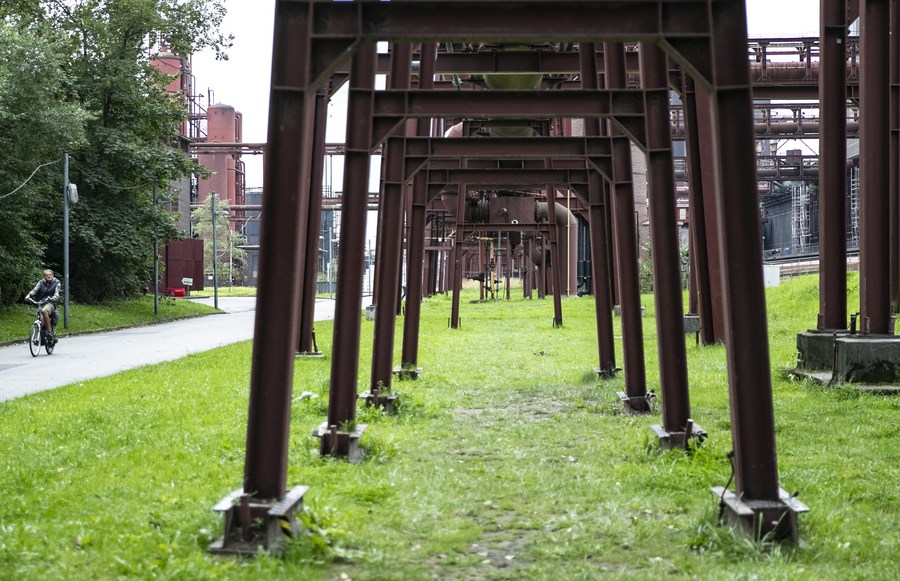Germany's economy mired in woes

People walk on a bridge in Berlin, Germany, Jan. 13, 2023. (Xinhua/Ren Pengfei)
The concern that a prolonged economic recession is on the horizon has been amplified by the latest indicators and projections, which paint a bleak picture for the EU's largest economy.
FRANKFURT, Germany, Sept. 28 (Xinhua) -- Germany's coalition government has been locked in a debate on whether electricity prices should be capped so that energy-intensive industries in the country can keep the machines in their factories humming.
The price cap was proposed by Economy Minister Robert Habeck, who argued that the surging energy prices, which contribute to the economic downturn, must be dealt with.
The concern that a prolonged economic recession is on the horizon has been amplified by the latest indicators and projections, which paint a bleak picture for the European Union's (EU) largest economy.
Germany's five leading economic research institutes -- the Leibniz Institute for Economic Research (RWI), the Halle Institute for Economic Research (IWH), the Kiel Institute for the World Economy, the German Institute for Economic Research (DIW Berlin) and the ifo Institute -- said on Thursday that they expect the country's economic output to decline by 0.6 percent this year.

A train runs in downtown Berlin, Germany, May 23, 2023. (Xinhua/Ren Pengfei)
"The most important reason for this is that industry and private consumption are recovering more slowly than we expected in the spring," IWH Vice President Oliver Holtemoeller said. Business sentiment has recently deteriorated again, he said, partly due to the political uncertainties, and production has "once again fallen noticeably."
The International Monetary Fund (IMF) has pointed out in its projections that Germany will become the only advanced economy to shrink in 2023.
The prospect of Germany turning out as a laggard has revived people's memory of the late 1990s and early 2000s, when the country was often referred to as "the sick man of Europe."
Pessimism among German business owners is driven home by the Ifo Business Climate Index, which has been sliding since April.
"Sentiment in the German economy remains bleak," the Ifo said in a statement.

Customers shop at a store in Berlin, Germany, Jan. 13, 2023. (Xinhua/Ren Pengfei)
In the face of soaring energy prices, an increasing number of German companies are mulling to relocate their production to places where energy bills are lower.
A survey published by the German Chamber of Commerce and Industry (DIHK) in August showed that around one-third of the country's industrial companies (twice as many as in 2022) are planning or have already started to relocate their production abroad.
"Germany struggles with structural challenges, including labor shortages, high energy costs, elevated regulatory and tax burdens, slow digitization and policy uncertainty," the Allianz economic research team said in a note.
Joachim Nagel, president of the German central bank (Bundesbank), acknowledged in a recent interview that the economic developments have not been satisfactory.

A man rides bicycle in the Zollverein coal mine industrial complex in Essen, Germany, Aug. 16, 2023. (Xinhua/Zhang Fan)
He said that the German economic model is facing challenges such as demographic changes, digitalization, decarbonization and the need to make international trade relations more resilient.
The economic model that needs to be "updated" is not "on the way out," he said.
"Germany is not the sick man of Europe," Nagel argued. The picture, he said, will "brighten up again next year."
Photos
Related Stories
Copyright © 2023 People's Daily Online. All Rights Reserved.









